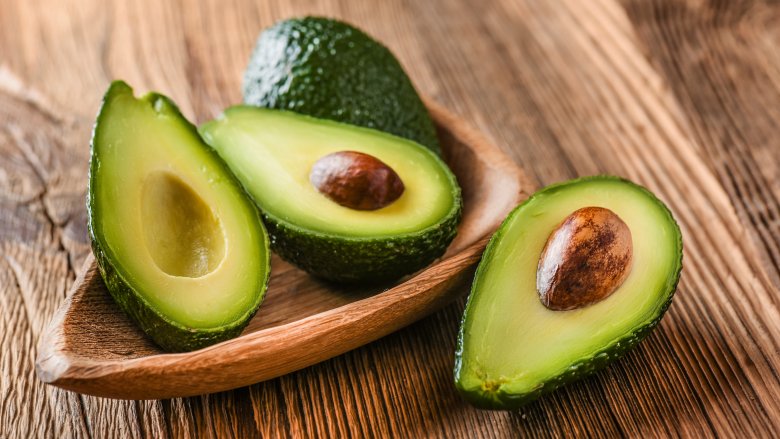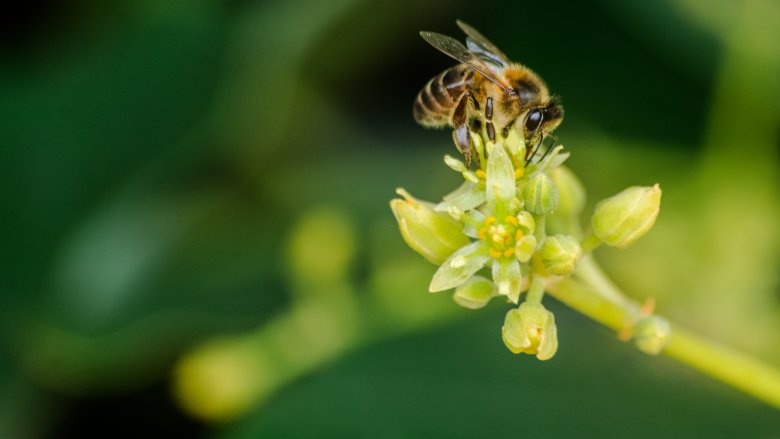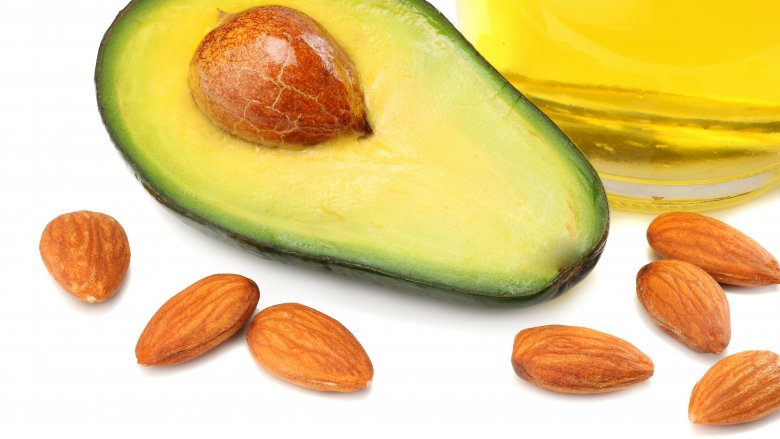Are Avocados Really Vegan?
If you happen to be a vegan who really loves avocados, well, we have some news that might have you spitting out your avocado smoothie in compete and total shock. Avocados aren't as vegan-friendly as you've been led to believe. Yes, they're definitely part of the fruit and veggie family and no, they aren't grown using the blood of baby lambs or something equally as horrifying. The issue with avocados and veganism really all falls upon how the plants are pollinated and just where a person decides to draw the line for themselves on what is and isn't vegan. Before you take another bite of avocado toast, let's break down how avocados might be problematic in relation to veganism.
Why avocados aren't so vegan-friendly after all
Here's why you may have some vegan friends who scoff at the idea of eating an avocado and others who happily shovel it in their mouth: Many of the avocados we enjoy are grown in California, and there simply aren't enough honey bees around to naturally make their way over to avocado fields to pollinate the fruits (via The Washington Post). To make up for this, farmers have to partake in a practice called migratory beekeeping. Basically, bee hives are trucked into avocado fields where they have a short window to work their magic and pollinate the plants .
As Scientific American points out, the problem that vegan advocacy groups like PETA have with migratory beekeeping is that humans are benefiting from the labor of bees — and a lot of bees can die in the process. When the avocado bloom is over the bees are left without anything to eat. While on the way to their next pollination job, the bees are only offered sugar syrup or pollen patties. This is far less nutritious than a bee's natural wild diet and entire hives can collapse from disease.
Avocados aren't the only food dependent upon bee labor
Obviously, a food like honey is made from bees, which is why most vegans abstain from eating it and go for a plant based substitute like agave nectar. However, avocados are really just the tip of the iceberg when it comes to foods that depend on migration beekeeping. All that almond milk you see in the aisle at the grocery store is also a result of the practice.
If that weren't concerning enough, many other foods that would fit into a vegan's diet such as blueberries, apples, pumpkin, squash, tangerines, plums, cherries, alfalfa, watermelon, cantaloupe, and cucumbers, might also involve some migratory beekeeping. Even lettuce could be a guilty culprit. This, of course, can make choosing what foods to eat very tricky for vegans and even PETA admits, somewhat unrealistic.
"Average shoppers can't avoid produce that involves migratory beekeeping, any more than they can avoid driving on asphalt," PETA spokesperson Tracy Reiman told The Washington Post. Deciding just how vegan avocados, almonds, or other foods are is a decision that each person will have to make for themselves.


